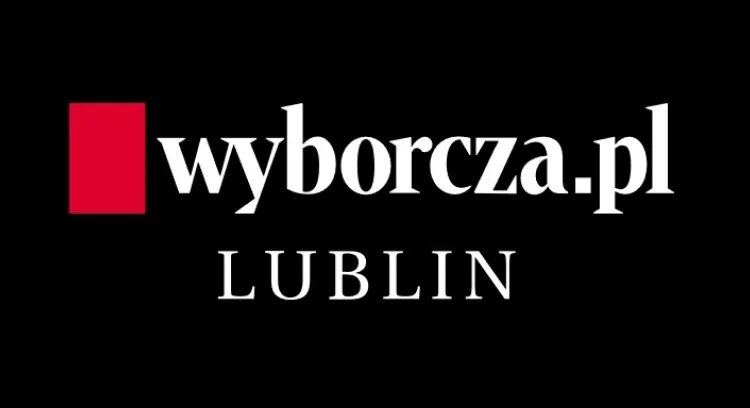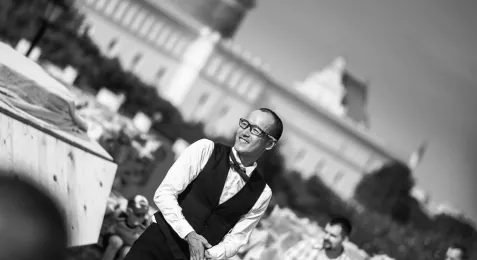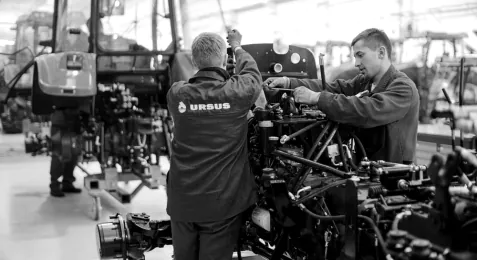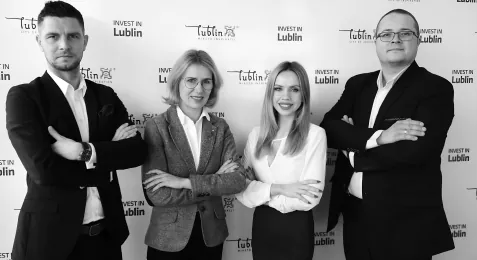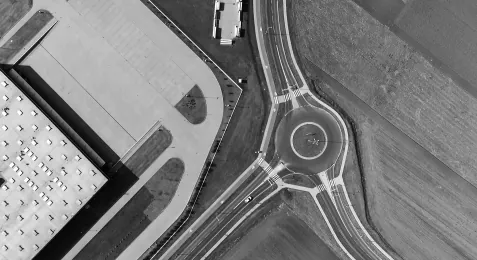Lublin Info Centre
miasto.to – Dimitri Roussopoulos in Lublin
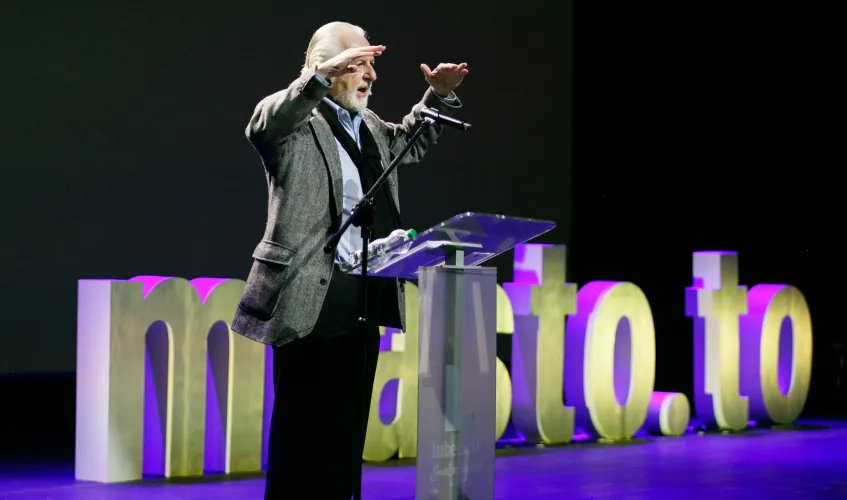
An outstanding thinker and activist who came to Lublin and on Wednesday evening in the Opera Hall of the Centre for the Meeting of Cultures delivered a lecture entitled “Right to the City”. He tried to show Lublin the path that is worth going along so that our city would be an excellent place to live. Dimitri Roussopoulos is a left-wing man, an ecologist, but also a social activist. In Lublin, during his lecture, he did not give any easy advice or simple solutions. However, he emphasised the role of caring for the natural environment, which today is subject to significant degradation by human actions and democratisation of the city’s governance.
Why is it so important? In 2007, for the first time, it turned out that most people in the world live in cities. They are the political, economic, economic, social and sociological backing for the decisions that are taken at the highest levels of government. The consequences of enormous urbanisation and migration are related to the problems. In some cities, human health is threatened, and environmental pollution is damaging. “In Canada, where I come from, the whole industrial heart in the south of the country is covered with smog. Many people are going to a hospital, for this reason, many die. They are also children and older people. (….) Societies are at war with nature. Often, people are talking about economic growth only for profit, regardless of cost. This war must stop. The environmental crisis is a social crisis. Nature will deal with it, but the society in which we live can be destroyed if we do not take the right steps”, said Roussopoulos during his lecture.
The Canadian thinker says that many issues will not be resolved at the government level. The same cities should be confronted with the problem and try to solve it.
Another issue that Dimitri Roussopoulos spoke about during his lecture is the process of democratisation of cities. Politicians must be open to the ideas of every citizen. They do not have absolute power. They have not been elected once and for all. It is not only for them to make decisions. They must be undertaken jointly. We must democratise democracy. It is not a process that ends. We must constantly find innovative solutions to problems in order to improve our democracy in cities. We want cities with gender equality, social equality, democratic institutions and a clean environment,” said Roussopoulos.
In 2001 in Montreal, the new municipal authorities decided to consult with residents on the most important decisions concerning, among others environment, economic development, cultural development and transport solutions. In total, three thousand citizens have been invited to discuss in groups what changes they expect. Dimitri Roussopoulos was the leader of one of them. The activists developed the Montreal Charter of Rights and Responsibility. It is a document in which there are references to the environment, economy and democracy. He speaks among others about the citizens’ rights to social initiatives, the need to organise professional, open public consultations in case a group of people have an idea for changes in the city and collects an appropriate number of signatures.
Why is this important? Citizens do not have to wait four years for the vote. During this time, they can organise a debate and demand better housing and environmental protection. Citizens have the right to formulate public policies and take part in decision-making. Also, it is institutionalised. UNESCO appreciated Montreal and recognised this charter as a role model for other cities, explained Canadian activist.
Roussopoulos encouraged Lublin residents to do the same. They have defined their rights, institutionalised the decision-making process in the most critical matters. This is the only way to contribute to the city’s co-decision process.
Mayor of Lublin Krzysztof Żuk, who also attended the lecture, agreed that today cities could do a lot. But they cannot do everything. If we have a coal-based economy, the cities will not change that. Cities need to work together with governments in the field of environmental policy, sustainable development. The Mayor responded to us by saying that the road ahead of us is still a long way off.
Krzysztof Żuk also argued that Lublin does not want to make mistakes made in the past by other big European or American cities. He spoke about the willingness to activate citizens and to include in the city development strategy tasks that contribute to making the city greener. This is the case, for example, with the purchase of low-emission urban transport vehicles. Maybe it is worth to work on such a charter as in Montreal and to create such a municipal constitution, said the Mayor of Lublin.
Source: Gazeta Wyborcza Lublin
